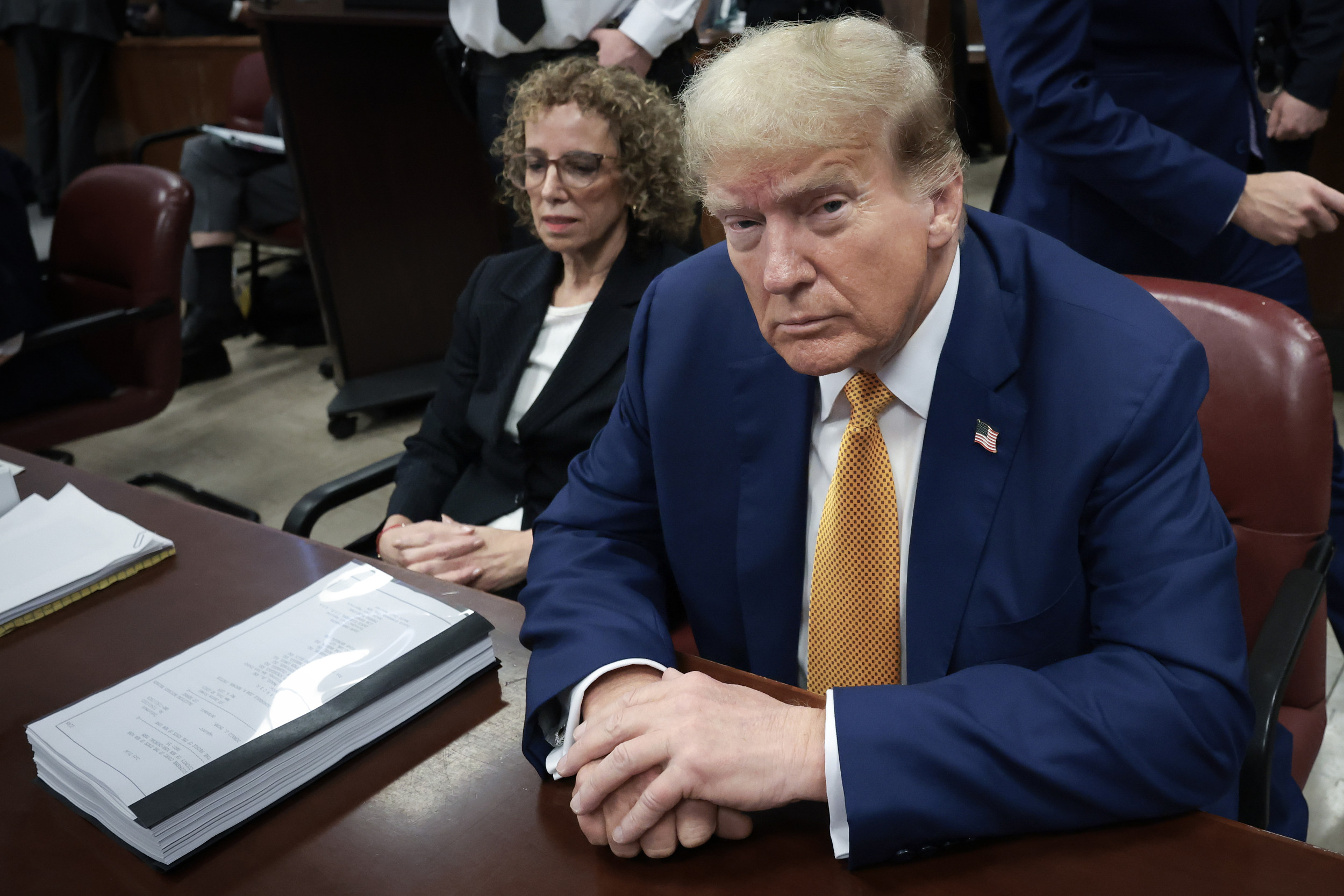The recent sudden eruption of unrest in Sudan, where the country's top military leader has announced the dissolution of the government, has captured the world's attention, including that of top global powers the United States, China and Russia.
Each of the trio has a vested interest in Sudan, and all three nations released statements in response to Monday's events.
U.S. special envoy for the Horn of Africa Jeffrey Feltman was actually in Khartoum over the weekend to hold meetings with top officials, including Prime Minister Abdalla Hamdok and Sovereignty Council Chair General Abdel Fattah al-Burhan.
Only about a day after those meetings, reports emerged that Hamdok had been placed under house arrest along with a number of other civilian leaders. Burhan announced he would lead a new temporary government that would guide the country to democracy after a 2019 uprising and subsequent coup ousted longtime leader Omar al-Bashir.
In a statement issued by the State Department's Bureau of African Affairs, Feltman said the U.S. was "deeply alarmed at reports of a military take-over of the transitional government." He argued a new coup "would contravene the Constitutional Declaration" adopted in August 2019, as well as "the democratic aspirations of the Sudanese people and is utterly unacceptable."
"As we have said repeatedly," he added, "any changes to the transitional government by force puts at risk U.S. assistance."
The U.S. embassy in Khartoum then expressed its own concerns as it became apparent that Burhan had placed himself in charge.
"The U.S. embassy is gravely concerned by reports that the armed forces have taken action against Sudan's civilian government, and condemns actions that are undermining Sudan's democratic transition," the embassy said in a statement. "We call on all actors who are disrupting Sudan's transition to stand down, and allow the civilian-led transitional government to continue its important work to achieve the goals of the revolution."
As confusion turned to chaos and reports emerged of the Sudanese military opening fire on protesters, the U.S. embassy warned U.S. citizens "to be aware of their surroundings and shelter in place," and not to visit the embassy or attempt to leave the country.
"The U.S. Embassy condemns the forced removal of the civilian government by Sudan's armed forces, and their actions to undermine the country's democratic transition," the embassy later said. "We call for the military to immediately cease violence, release detained officials, and ensure the safety of Sudanese citizens demonstrating for democratic and civilian leadership."
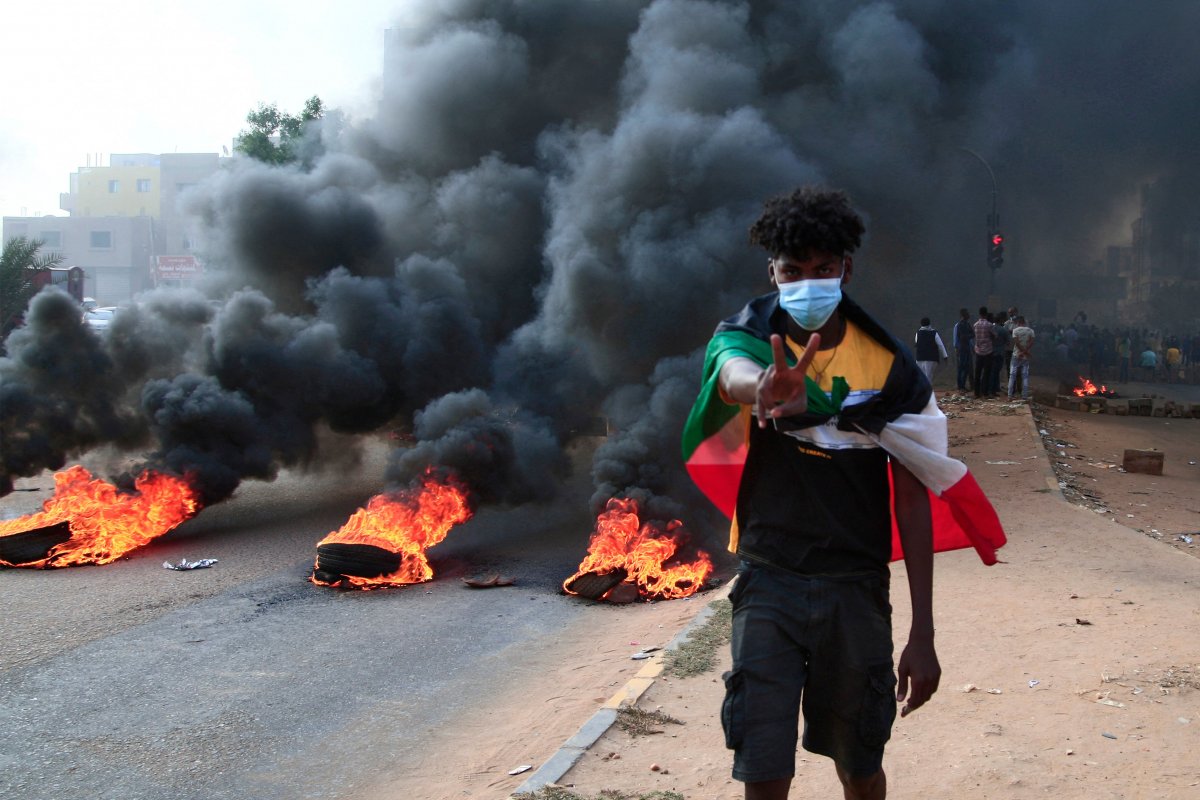
The U.S. was a vocal supporter of the 2019 demonstrations that ultimately brought to an end 30 years of Bashir's rule, which itself began with a coup against the democratically elected government of former Prime Minister Sadiq al-Mahdi and former President Ahmed al-Mirghani. And U.S. officials under former President Donald Trump's administration applauded the formation of the Sovereignty Council consisting of both military and civilian officials.
Another major development came late last year as the U.S. rescinded Sudan's label as a state sponsor of terrorism. The new government in Khartoum, for its part, agreed to pay $335 million to compensate survivors and victims' families from the 1998 bombings of U.S. embassies in Kenya and Tanzania carried out by Al-Qaeda, which the U.S. accused Bashir of sheltering, as well as to recognize Israel, a historic foe of the Arab World.
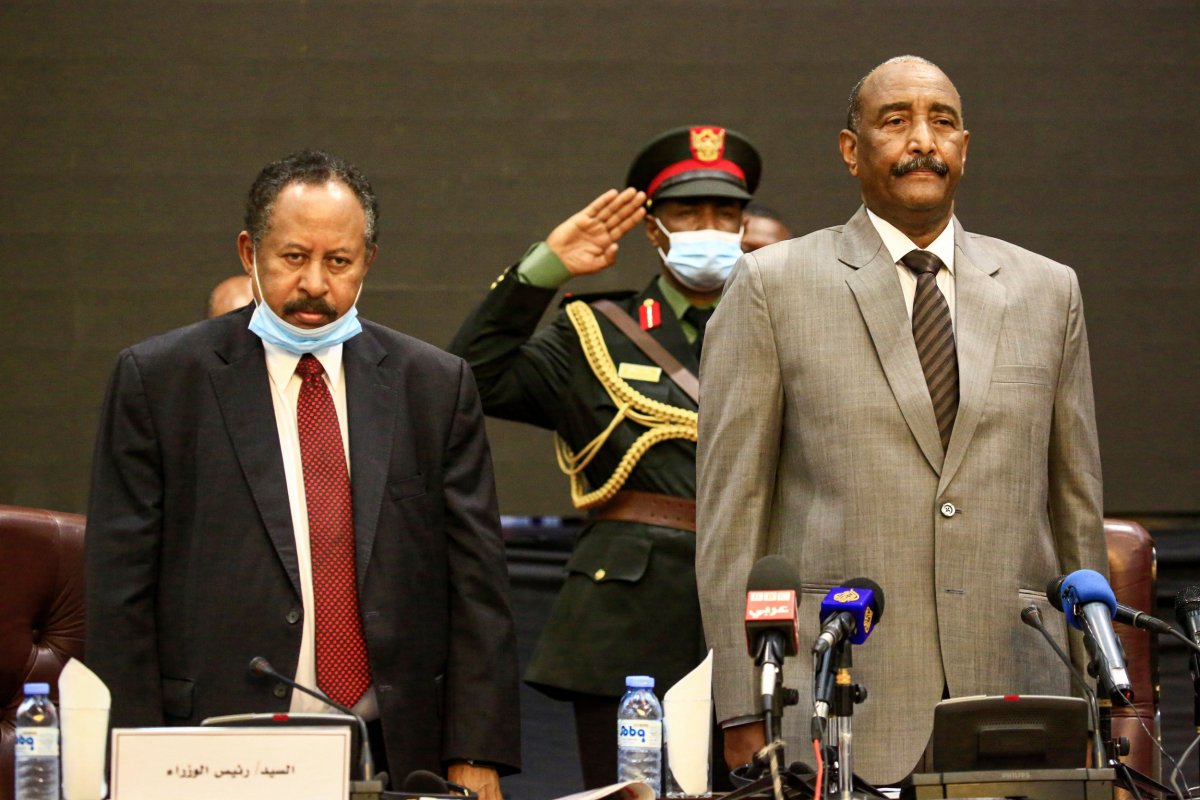
But internally, tensions between the armed forces and activists persisted, and just last month a coup attempt blamed on Bashir loyalists was thwarted.
And while Burhan vowed on Monday to continue on Sudan's path to democracy with elections set for July 2023, the developments ushered in yet another era of uncertainty for a nation already beset by a troubled history of coups and conflicts since gaining independence from Egypt and the United Kingdom in 1956.
However, China is one country that has managed to maintain amicable relations throughout various periods of political leadership in Sudan. On Monday, Beijing also expressed concern toward the latest events and issued assurances that its embassy in Khartoum was functioning as usual.
"China is following the latest developments in Sudan, and calls on relevant parties in Sudan to resolve differences through dialogue and maintain national peace and stability," Chinese Foreign Ministry spokesperson Wang Wenbin told reporters. "At present, the Chinese embassy is operating normally."
Due to the volume of cooperation between the two countries, the African nation hosts a number of Chinese nationals and interests. Wang said China would not hesitate to protect them.
"China will closely follow the developments and take necessary measures to ensure the safety and security of Chinese institutions and people in Sudan," Wang said.
Oil was originally among China's top interests in Sudan, but this dynamic shifted after the 2011 division that saw the independence of South Sudan, which today includes a number of oil-rich regions where Chinese companies continue to operate.
As for the larger northern territory that remains Sudan, China has invested heavily in the country that is a participant in President Xi Jinping's intercontinental Belt and Road Initiative of infrastructure projects, including work on railways, roads and ports for a country strategically located on the Red Sea.
Bashir's 2019 removal did little to hamper Khartoum's ties with Beijing, and the Sovereignty Council leadership only deepened relations with China both economically and politically.
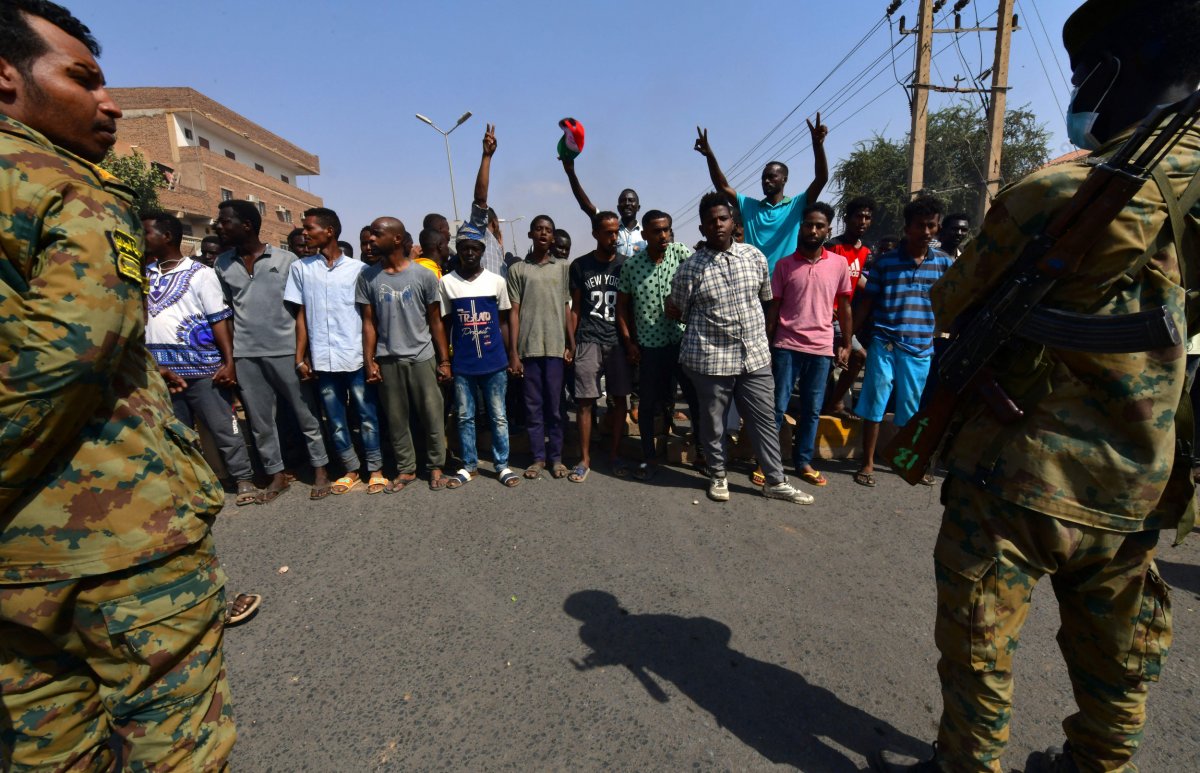
While China has also been a major arms supplier to Sudan, it is Russia that provides the vast majority of Sudan's weapons imports.
Moscow has expanded its footprint in Africa in recent years, and Sudan has been a focus of Russian projects, especially in the security realm. Russia and Sudan agreed last December on the establishment of a Russian naval logistic base off the African nation's Red Sea coast, but as of last month the two sides were still in talks on the matter.
Members of Russia's Wagner, a private military company, have also been spotted operating in Sudan. This deployment is one of several that led the U.S. to roll out sanctions last year against Russian businessman Yevgeniy Prigozhin, who is alleged by the U.S. Treasury Department to have funded a Wagner-led attempt to suppress protests against Bashir.
For its part, Russia has accused the U.S. of interfering in Sudanese affairs, including in its support of the country's division and the 2019 coup. Russian Foreign Minister Sergey Lavrov reiterated these grievances in a statement last week, and on Monday the Russian Foreign Ministry reacted to the latest events.
The ministry fell short of explicitly supporting Burhan's moves, but said such actions appeared to be rooted in the shortcomings of the transitional government.
"We proceed from the fact that such a development of events in Sudan has become evidence of an acute systemic crisis that has engulfed all areas of the country's political and economic life," the statement said. "This is a natural result of a failed policy that has been pursued over the past two years. The despair and plight of the vast majority of the population were virtually ignored by the transitional authorities and their foreign patrons and advisers."
The ministry placed particular blame on unnamed outside powers for these failures.
"Large-scale foreign interference in the internal affairs of the republic in practice led to the loss of confidence in the transitional authorities by Sudanese citizens," the ministry said, "which repeatedly resulted in numerous protests and provoked general instability in the country, including the actual isolation of a number of its regions."
The statement also pledged support for indigenous political developments in Sudan rooted in the will of its people.
"We are convinced that the Sudanese can and should independently solve internal problems and determine the vector of their country's sovereign development, proceeding from national interests," the ministry said. "The Russian Federation will continue to respect the choice of the friendly Sudanese people and provide them with all the necessary assistance."
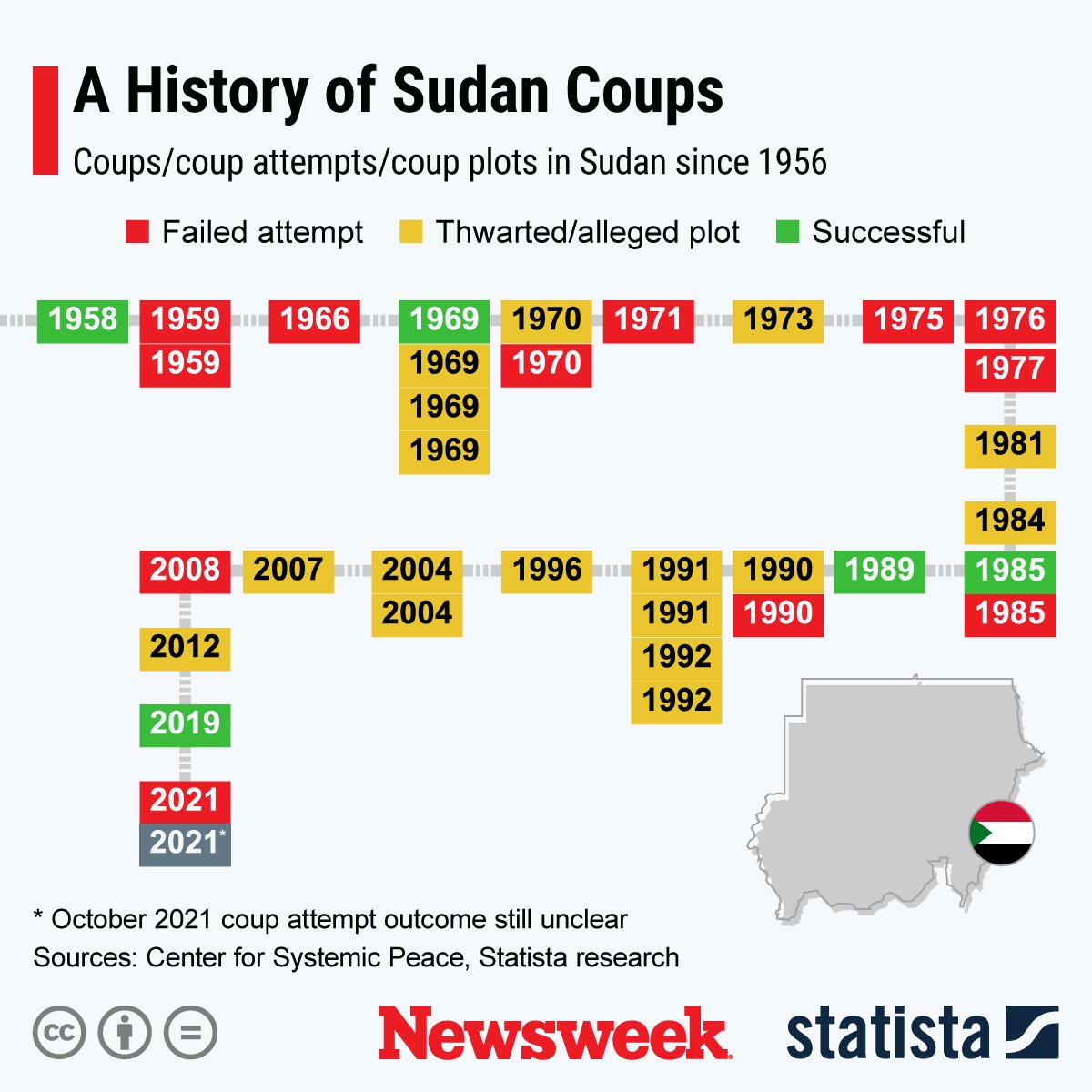
The above graphic was provided by Statista.
Uncommon Knowledge
Newsweek is committed to challenging conventional wisdom and finding connections in the search for common ground.
Newsweek is committed to challenging conventional wisdom and finding connections in the search for common ground.
About the writer
Based in his hometown of Staten Island, New York City, Tom O'Connor is an award-winning Senior Writer of Foreign Policy ... Read more
To read how Newsweek uses AI as a newsroom tool, Click here.






